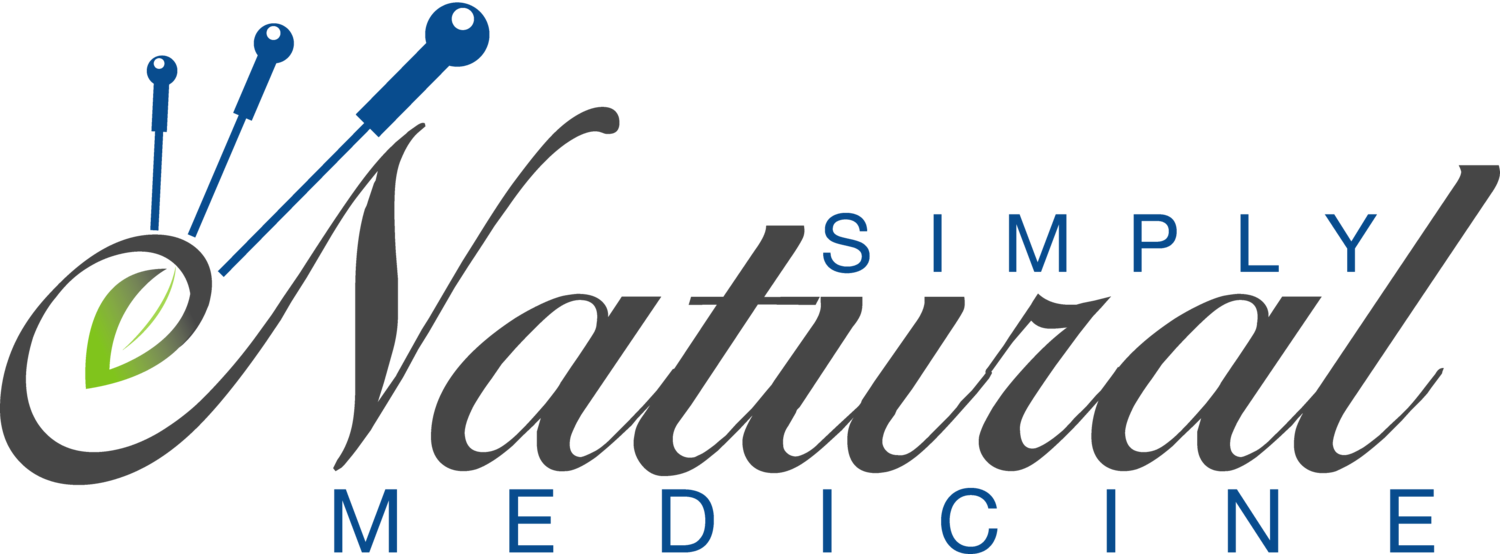What is Naturopathic Medicine?
Naturopathic medicine is a comprehensive and holistic approach to medicine based on the healing power of nature and focuses on prevention and treatment of underlying disease. ND’s abide by six key elements of medicine:
The healing power of nature
Identify and treat the causes
First do no harm
Doctor as teacher
Treat the whole person
Prevention
Using these principles, ND’s practice a holistic approach to well-being by focusing on treating the whole person: physical, emotional, mental, and spiritual health. Wellness is a continually changing state of being healthy, and health is an inherent need for everyone. The ND is uniquely qualified to promote optimum health for all patients of all ages.
Disease as a process
Naturopaths use the Therapeutic Order to ensure proper treatment of symptoms by addressing the underlying disturbance. For example, a patient with a common cold may use a common cold remedy to stop their running nose. This is a high force intervention aimed at suppressing the symptom. Another way to address the same runny nose is to consider the cause of it. For simplification, let’s say the common cold is due to a viral infection. Your body wants to be healthy, and is producing the runny nose because your immune system is fighting the infection. Therefore suppressing the runny nose is suppressing your healing. A naturopathic approach would be to support the immune system, provide low force antiviral therapies, and allow the body to do what it does best – strive to be healthy.
So you’re a homeopath? Not quite…
There is a great deal of terminology used to describe Naturopathic Medicine, but they don’t all mean the same thing, and majority of them shouldn’t be used interchangeably, but, unfortunately often are. Here are some brief descriptions of the different words used when trying to describe a Naturopathic Physician and Naturopathic Medicine:
Naturopathic Physician- A naturopathic physician is a healthcare provider who has completed an undergraduate degree with premedical coursework, earned a doctorate from one of the seven accredited naturopathic medical schools, and passed two national board licensure exams to become a licensed Naturopathic Doctor (ND). Many of completed post doctoral residencies. Treatments are individualized and guided by the naturopathic principles and the therapeutic order. Other terms you may see include Naturopath, Doctor of Naturopathic Medicine (ND), Naturopathic Doctor, and Natural Doctor.
Doctor of Osteopathy- A DO is a fully licensed physician, similar to an MD, who focuses on preventive care and treating the whole person. DOs receive conventional medical training and pass board exams but also have additional education in the musculoskeletal system, using this knowledge to understand how one part of the body affects another.
Integrative Medical Doctor- Integrative medicine (IM) is much like naturopathic medicine and osteopathic medicine, where the focus on the whole person. Integrative medicine centers around the mind-body connection and uses this to help treat illness. Integrative medical doctors attended a conventional medical school where they took extra classes focusing on nontraditional therapies including, but not limited to, massage, meditation, and traditional Chinese medicine.
Homeopathic Doctor- Homeopathy is one of the “tools” in the toolbox of naturopathic medicine, but a homeopath is not a naturopathic doctor (although an ND may be a homeopath). It was developed by Samuel Hahnemann who observed the idea “like cures like,” by proving different homeopathic remedies on himself. Hahnemann discovered that a substance that would cause symptoms of disease in healthy people could also be used to cure similar symptoms in sick people. Homeopathy is not tightly regulated and therefore the term homeopath may be used by anyone who uses homeopathy as a therapy. A board certified homeopathic physician (D. Ht) is someone who has completed extensive prerequisites, including medical school and 3 years of experience with patients, and have passed a national board exam.
Holistic Doctor- Holistic medicine is a general term used to describe healing that treats the whole person: mind, body, spirit, and emotions. Therefore, an MD, ND, DO, massage therapist, IM, homeopath, etc., are all considered holistic doctors as long as they practice with the philosophy of treating the whole person.
Medical Doctor- A medical doctor (MD) is someone who completed conventional medical school, a residency program for 3-8 years, and passed their national board exams. MD’s either specialize in a specific field (i.e. ENT, podiatrist, surgery) or do general medicine. Majority of medical doctor’s tend practice in hospital or clinical settings.
Herbalist- Herbalism is the study of plants for medicinal purposes, which makes an herbalist a specialist in this. There are many different degrees of expertise in this field. For example, one could have attended a university and received a masters degree in herbal science, or one could have taken a few online or local courses on botanical medicine. Herbalists who are gone through proper training are usually educated on identification, mechanism of action, therapeutic use, and harvesting of medicinal plants. ND’s are also educated on these subjects, along with proper dosing, preparation, and safety information. Additionally, many herbalists have been taught from oral traditions and focus primarily on remedies that have been handed down over time, rather than researched. Often herbalists also work within energetic systems such as oriental medicine.
Functional vs. “Quack” Practitioners - Unfortunately, in states where naturopathic doctors are not licensed, unqualified individuals may call themselves naturopaths without proper training, which damages the profession’s credibility. It’s important to ensure your provider graduated from an accredited naturopathic medical school and holds a license in a regulated state.
Complementary and Alternative Medicine (CAM) Providers- CAM refers to a wide range of practices that complement or serve as alternatives to conventional medicine. This includes MDs, NDs, DOs, chiropractors, acupuncturists, homeopaths, massage therapists, and more. These providers often focus on enhancing wellness and treating the whole person.
Conventional medicine- This refers to evidence-based medicine as practiced by MDs and DOs, often in hospitals and clinics. It focuses on diagnosing and treating disease using pharmaceuticals, surgery, and other standard interventions. Other terms include allopathic, western, orthodox, or regular medicine. Hospitals and other fast paced medical clinics are often (but not always) conventional care. Other analogous terms include allopathic medicine, western medicine, regular medicine, and orthodox medicine.
So how does and ND compare to an MD?
Both an ND and MD received an undergraduate degree in premedical studies, graduated from an accredited medical school, and have spent hundreds of hours working with practicing physicians in a clinical setting. MD’s are required to do a residency program where they complete rotations in many of the major fields of conventional medicine- surgery, pediatrics, family medicine, etc. ND’s complete majority of their clinical training in family based clinics. Residencies are available for ND’s after graduation, but are not mandatory. This is likely to change in the future when more states gain licensure and there are more practicing ND’s.
Here is a chart comparing the curriculum of naturopathic medical schools (Bastyr and NCNM) with conventional medical schools (Yale, Johns Hopkins, Wisconsin). The schools on the far right are 2 non-accredited naturopathic schools. Students graduating from these schools are NOT naturopathic physicians but may use the term “doctor” in states where naturopathic medicine is unlicensed.
How can naturopathic medicine benefit you?
Naturopathic physicians are primary care providers trained in conventional medical sciences as well as botanical medicine, homeopathy, physical medicine, counseling, nutrition, and other natural therapies. ND’s are often successful in treating chronic conditions that do not respond well to conventional care, as well as all other non urgent medical issues. Emergency medicine and life threatening conditions are better handled in a hospital setting with conventional care.
ND’s spend more time with their patients during a visit and tend to get to know their patients on a psycho-social-emotional level. Treatments are individualized to each patient based on their unique presentation. ND’s typically prefer to see their patients on a yearly basis, quarterly for chronic conditions, and acutely when needed- although this does vary between doctors.
What do naturopathic patient visits look like?
As mentioned above (probably a few more times than needed!), Naturopath’s treat the whole person, not just the symptom. In order to do this, a typical first office call will be anywhere from 45 minutes to an hour and a half. After the initial visit, follow up visits run about 30 minutes to 1 hour. A typical visit will begin with a thorough intake about your chief complaints, a focused physical exam, a review of general body systems, patient education, and treatment (although this does vary widely between practitioners). Docere, meaning doctor as teacher, is one of the core philosophies of naturopathic medicine, which puts emphasis on ND’s spending time educating their patients on their health in order to empower them to take charge of their own healthcare.
Where can you find a naturopathic doctor?
The quickest way to find a licensed ND in your area is to use the AANP website. Click here.
If you are considering a doctor in your area, make sure they have met the following criteria:
They must have graduated from one of the 7 accredited naturopathic medical schools-
🇺🇸 United States
Bastyr University — Kenmore, Washington & San Diego, California
National University of Natural Medicine (NUNM) — Portland, Oregon
National University of Health Sciences (NUHS) — Lombard, Illinois
Southwest College of Naturopathic Medicine & Health Sciences (SCNM) — Tempe, Arizona (now called Sonoran University of Health Sciences)
University of Bridgeport — School of Naturopathic Medicine (UBSNM) — Bridgeport, Connecticut (NOTE: UBSNM closed in 2022; the program is no longer accepting students)
🇨🇦 Canada
Canadian College of Naturopathic Medicine (CCNM) — Toronto Campus — Toronto, Ontario
Canadian College of Naturopathic Medicine (CCNM) — Boucher Campus — New Westminster, British ColumbiaThey must hold an active license to practice as a physician. If you are in an unlicensed state, make sure the ND holds licensure in a licensed state and has passed their board exams.
Find the right fit for you. There are many different “tools” in the toolbox of naturopathic medicine; so different practitioners will have very different practices. For example, you may prefer energetic medicine (craniosacral, acupuncture, visceral manipulation) or physical medicine (adjustments, hydrotherapy, massage) or botanical medicine.













